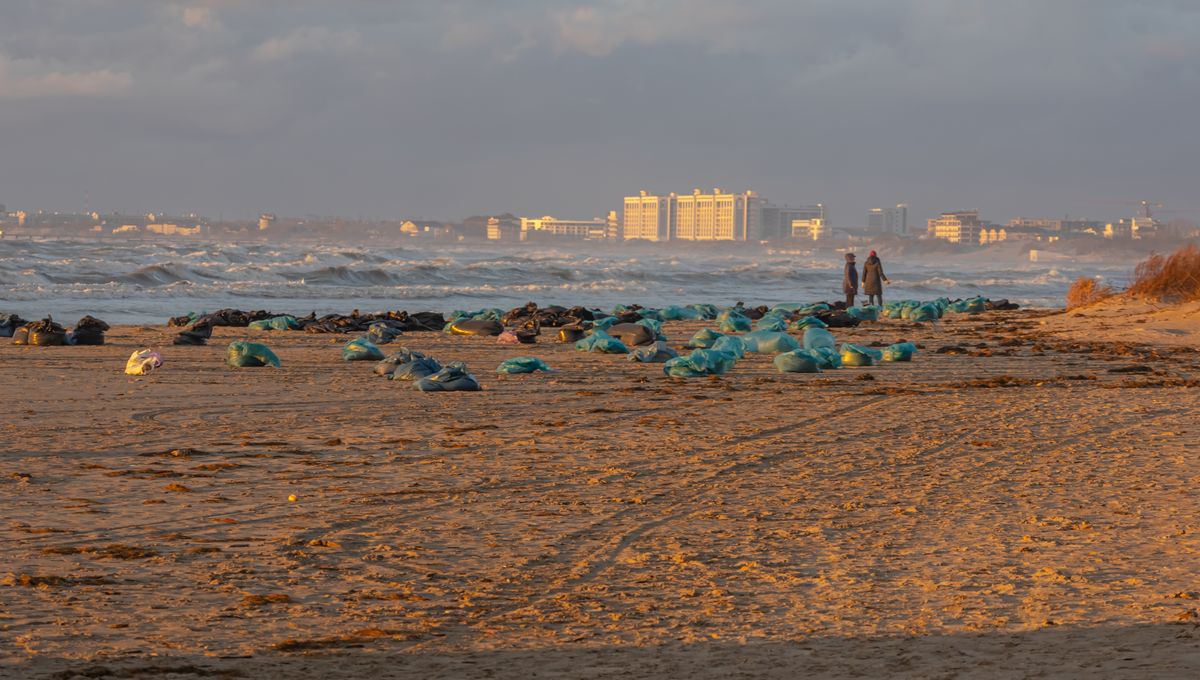
An oil spill in the Black Sea is believed to have resulted in the death of over 30 cetaceans, including several members of an endangered subspecies.
The spill, which occurred after two Russian oil tankers were damaged in a storm in mid-December 2024, spread out into the Kerch Strait – a strip of water connecting the Black Sea and the Sea of Asov – where it appears to have had a significant affect on the area’s marine life.
“Since the emergency, we have recorded 61 dead cetaceans, including 32 individuals who died after December 15, whose death is most likely related to the fuel oil spill,” said Russia’s Delfa Dolphin Rescue and Research Center in a statement posted to Instagram on January 5.
“Judging by the condition of the bodies, most likely the majority of these cetaceans died in the first 10 days after the disaster. And now the sea continues to wash them up.”
The deaths of the remaining 29 cetaceans are not thought to be related to the oil spill, as they were “very old bodies”, but the organization remains concerned by the high number of fatalities that are considered to be linked to the incident.
“Almost every day we receive information about new dead dolphins,” said the center. “For this period of time, such a number of dead is an atypically large figure […] We can expect the number of injured cetaceans to increase in much greater numbers than usual in the coming months.”
Several of those found dead are said to be so-called “Azov dolphins”. Though they bear some resemblance to dolphins, they are in fact a subspecies of the harbor porpoise (Phocoena phocoena relicta) – one that is already considered to be endangered, making this recent incident all the more concerning.
Oil spills can have significant and long-lasting impact on marine life. In the five years following the 2010 Deepwater Horizon incident, dolphins in the Barataria Bay area experienced increased mortality, failed pregnancy, and risk of adverse health effects. Researchers continue to monitor the ongoing effects of the spill on wildlife, but some have estimated it could take as long as 39 years for the Barataria dolphins to fully recover.
As for the Kerch Strait spill, the Delfa Center has said that it is now making preparations in anticipation of further affected marine life in the coming months.
“[O]ur main task is to prepare as much as possible for this moment and to organize an inpatient hospital to provide long-term assistance to the victims,” it said. “This is critically important, since in areas contaminated with fuel oil, it will no longer be possible to provide assistance to dolphins directly in shallow water, as we did before this season. Therefore, a hospital needs to be organized as soon as possible.”
Source Link: Over 30 Cetaceans Die After Russian Tankers Spill Oil Into Black Sea